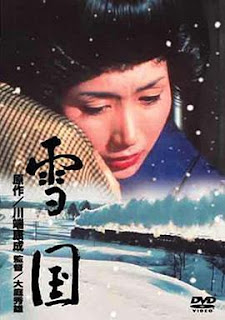22. Oân-choân sī bô-chhái kang
Pí khí ji̍t-kì, Shimamura koh-khah ì-gōa ê sī, yi chū cha̍p-gō͘/la̍k hòe khai-sí, lóng kā tha̍k kòe ê sió-soat kì khí-lâi, cha̍p-kì-phō͘ mā í-keng kì cha̍p pún ah.
"Kám-sióng lóng kì lo̍h-lâi, hoⁿh?"
"Góa bô siá sáⁿ-mih kám-sióng. Kan-ta kì chheh miâ, chok-chiá, hām chheh tiong jîn-bu̍t ê miâ, iáu ū hiah-ê lâng tiong-kan ê koan-hē."
"Kan-ta kì hiah-ê, ū sáⁿ lō͘-iōng?"
"Sī bô lō͘-iōng ah."
"Bô-chhái kang."
"Sī ah," cha-bó͘ khin-sang án-ne kā ìn, bô-iàu-bô-kín, koh kim-kim khòaⁿ Shimamura.
Oân-choân sī bô-chhái kang, Shimamura m̄-chai án-nóa, chiok siūⁿ boeh koh-chài kiâng-tiāu chit-tiám.
Hit-ê sî-chūn, seh ê lêng-chēng thàng kòe i ê hûn-su, in-ūi i chhim-chhim hō͘ hit-ê cha-bó͘ só͘ khip-ín. I chai-iáⁿ, che tùi yi m̄-sī bô-chhái kang, m̄-koh khí-thâu kóng bô-chhái kang liáu, tian-tò kám-kak chit-ê cha-bó͘ ê chûn-chāi koh-khah sûn-kiat.
Chit-ê cha-bó͘ kóng tio̍h ê sió-soat, thiaⁿ khí-lâi hām lán ji̍t-siâng sú-iōng ê "bûn-ha̍k" chit-ê gí-sû bô sáⁿ koan-hē. Khòaⁿ lâi, yi hām chng-lāi ê lâng ê iú-gî, kan-ta sī kau-ōaⁿ lú-jîn cha̍p-chì, āu--lâi tō sûi-lâng ka-tī tha̍k. Bô kéng tha̍k, mā bô iau-kiû liáu-kái, khòaⁿ tio̍h kheh-chàn kheh-thiaⁿ ū sáⁿ-mih sió-soat a̍h cha̍p-chì, yi tō chioh lâi tha̍k. Yi kì ē-tio̍h ê sin chok-ka ê miâ, ū bē-chió Shimamura mā m̄-bat. Thiaⁿ yi ê kháu-khì, bē-su tih kóng iâu-oán ê gōa-kok bûn-ha̍k, ū chi̍t-chióng chhe-liâng, ai-oàn ê siaⁿ-tiāu, ná-chhiūⁿ bô chì-khì ê khit-chia̍h kāng-khoán. Shimamura sim-lāi tih siūⁿ: i ka-tī khò gōa-bûn chheh ê tô͘-phìⁿ hām bûn-jī lâi bāng-sióng iâu-oán ê Se-iûⁿ bú-tō, oân-á mā sī án-ne neh.
Yi mā thiòng kah kóng-khí m̄-bat khòaⁿ kòe ê tiān-iáⁿ hām hì-kio̍k, ká-ná kúi-ā kò goe̍h iau kho̍k-kho̍k, chiah tán tio̍h kóng chit-lō ōe-tê ê phōaⁿ. Kám kóng yi bē-kì-lih chi̍t-pah káu-cha̍p-káu kang chêng, kāng chiah-ê ōe-tê, hō͘ yi jia̍t kah ka-tī hiàn-sin hō͘ Shimamura ê tāi-chì? Chit-má yi mā in-ūi ka-tī só͘ kóng ê ōe, iū-koh kui-hûn-su sio hōng-hōng.
--
22. 完全是無彩工
比起日記, Shimamura 閣較意外 ê 是, 她自十五六歲開始, 攏 kā 讀過 ê 小說記起來, 雜記簿 mā 已經記十本 ah.
"感想攏記落來, hoⁿh?"
"我無寫啥物感想. 干焦記冊名, 作者, 和冊中人物 ê 名, 猶有 hiah-ê 人中間 ê 關係."
"干焦記 hiah-ê, 有啥路用?"
"是無路用 ah."
"無彩工."
"是 ah," 查某輕鬆 án-ne kā 應, 無要無緊, koh 金金看 Shimamura.
完全是無彩工, Shimamura 毋知 án-nóa, 足想欲閣再 kiâng 調這點.
彼个時陣, 雪 ê 寧靜迵過伊 ê 魂軀, 因為伊深深予彼个查某所吸引. 伊知影, 這對她毋是無彩工, 毋過起頭講無彩工了, 顛倒感覺這个查某 ê 存在閣較純潔.
這个查某講著 ê 小說, 聽起來和咱日 siâng 使用 ê "文學" 這个語詞無啥關係. 看來, 她和庄內 ê 人 ê 友誼, 干焦是交換女人雜誌, 後來 tō 隨人 ka-tī 讀. 無揀讀, mā 無要求了解, 看著客棧客廳有啥物小說 a̍h 雜誌, 她 tō 借來讀. 她記會著 ê 新作家 ê 名, 有袂少 Shimamura mā m̄-bat. 聽她 ê 口氣, 袂輸 tih 講遙遠 ê 外國文學, 有一種淒涼, 哀怨 ê 聲調, ná 像無志氣 ê 乞食仝款. Shimamura 心內 tih 想: 伊 ka-tī 靠外文冊 ê 圖片和文字來夢想遙遠 ê 西洋舞蹈, oân 仔 mā 是 án-ne neh.
她 mā 暢 kah 講起 m̄-bat 看過 ê 電影和戲劇, ká-ná 幾 ā 個月枵 kho̍k-kho̍k, chiah 等著講 chit-lō 話題 ê 伴. 敢講她袂記 lih 一百九十九工前, 仝 chiah-ê 話題, 予她熱 kah ka-tī 獻身予 Shimamura ê 代誌? Chit-má 她 mā 因為 ka-tī 所講 ê 話, 又閣規魂軀燒烘烘.
--
22.
But even more than at the diary, Shimamura was surprised at her statement that she had carefully catalogued every novel and short story she had read since she was fifteen or sixteen. The record already filled ten notebooks.
"You write down your criticisms, do you?"
"I could never do anything like that. I just write down the author and the characters and how they are related to each other. That is about all."
"But what good does it do?"
"None at all."
"A waste of effort."
"A complete waste of effort," she answered brightly, as though the admission meant little to her. She gazed solemnly at Shimamura, however. A complete waste of effort. For some reason Shimamura wanted to stress the point. But, drawn to her at that moment, he felt a quiet like the voice of the rain flow over him. He knew well enough that for her it was in fact no waste of effort, but somehow the final determination that it was had the effect of distilling and purifying the woman's existence.
Her talk of novels seemed to have little to do with "literature" in the everyday sense of the word. The only friendly ties she had with the people of this village had come from exchanging women's magazines, and afterwards she had gone on with her reading by herself. She was quite indiscriminate and had little understanding of literature, and she borrowed even the novels and magazines she found lying in the guests' rooms at the inn. Not a few of the new novelists whose names came to her meant nothing to Shimamura. Her manner was as though she were talking of a distant foreign literature. There was something lonely, something sad in it, something that rather suggested a beggar who has lost all desire. It occurred to Shimamura that his own distant fantasy on the occidental ballet, built up from words and photographs in foreign books, was not in its way dissimilar.
She talked on happily too of movies and plays she had never seen. She had no doubt been starved all these months for someone who would listen to her. Had she forgotten that a hundred and ninety-nine days earlier exactly this sort of conversation had set off the impulse to throw herself at Shima· mura? Again she lost herself in the talk, and again her words seemed to be warming her whole body.
--


No comments:
Post a Comment